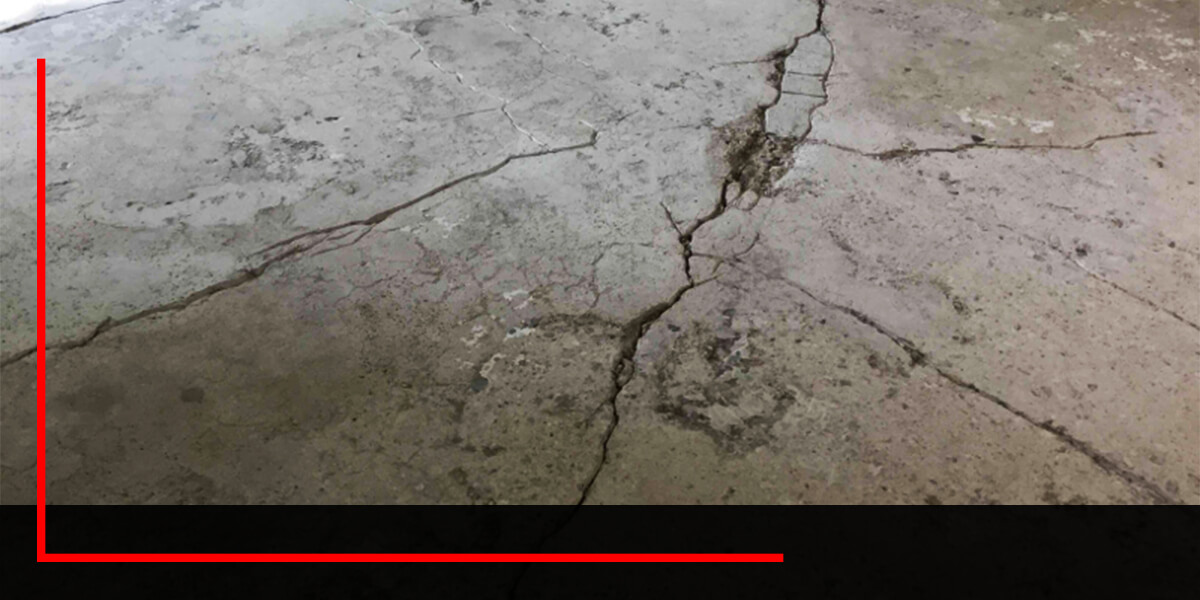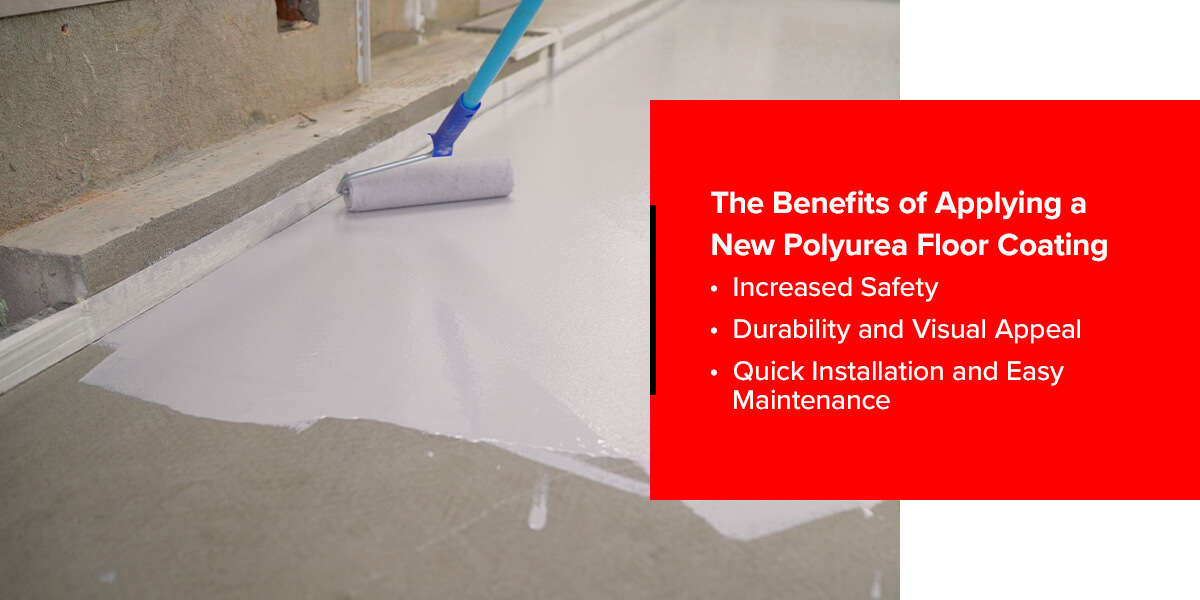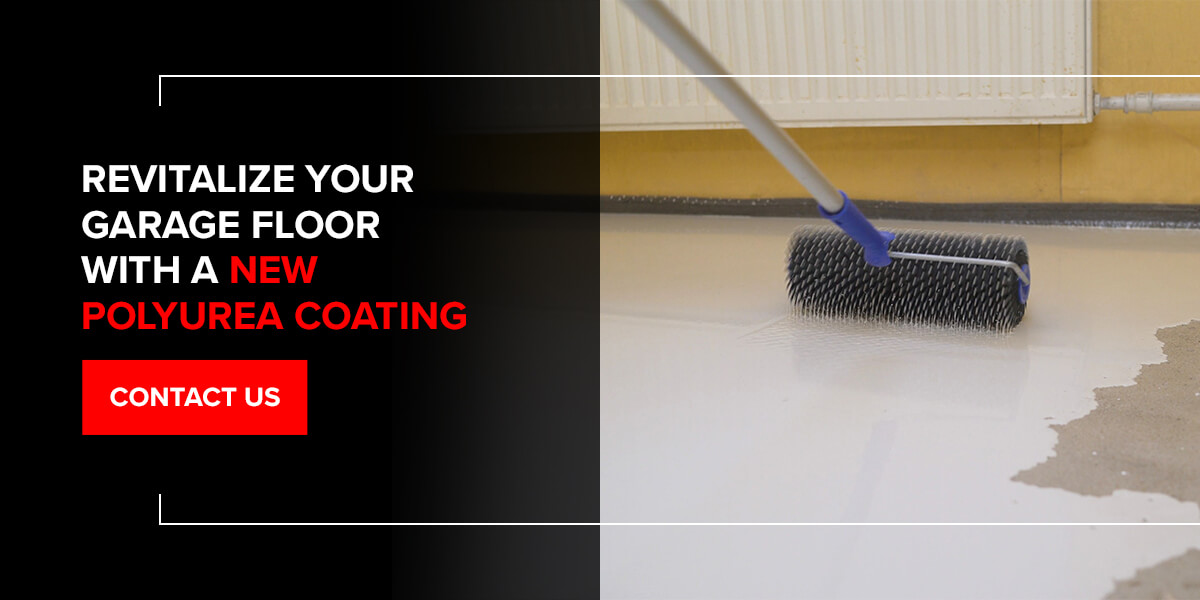5 Signs It’s Time For a New Concrete Floor Coating
Concrete floors are built to last and will last even longer with the proper coating. A protective coating prevents damage to the concrete, blocking the moisture or chemicals that would have otherwise gotten to the floor.
But how do you know it is time to coat? When does a repair job in a small section do the trick, and when is it time to recoat the whole floor? Here are the top five signs that you may need a new floor coating.
1. Cracks Are Appearing
As your concrete expands and contracts as your foundation moves, the weight on the floor and the season’s temperature, the polyurea coating moves with it. It has the elasticity that will move with your floor.
Once your coating starts to crack, the concrete becomes more vulnerable to damage from debris, salt, spills and moisture. Call a professional about getting a polyurea coating to repair the cracks before they get extensive.
2. Your Floor Is Uneven
An uneven floor can happen to any part of your house. As the years go by, construction errors, external movements and wear and tear can come into play. Some common reasons why floors become uneven over time are:
- Extra moisture: If there’s a leak in your pipes or the water main, the excess moisture can cause the soil to shift, creating uneven floors in your house.
- Ground movement: In addition to moisture, tree roots expanding into the area or nearby construction can cause the soil under your garage to move.
- Errors in construction: Construction workers need to compact the ground before construction. If the contractor rushed through this step or did it during wet weather, the soil might shift later. Undersized foundations are another possible cause.
- Pressure: Constant weight or traffic on top of the floor can press down and cause an uneven surface.
A coat of polyurea could even out a mildly uneven surface. You’ll need more significant repairs if the floor is sagging or visually sinking.
3. Moisture and Water Collection
While the foundation and infrastructure block moisture from below, your polyurea coating stops moisture from reaching the concrete floor from above.
High humidity and trapped moisture can lead to corrosion that damages concrete. Eventually, the concrete will become brittle and crumbly. If a spot in your garage is constantly wet, you must find the source of the moisture.
Possible explanations could be:
- A leaky pipe.
- Water dripping from the roof.
- An unsealed shower or water source.
4. Peeling and Bubbling
There are two reasons why your coat could be peeling and bubbling:
- It is an out-of-date coating that has gotten old: Modern coatings, such as polyurea concrete coating, cannot flake and peel. Replacing your old coat with a more durable polyurea coating will help restore your floor’s aesthetic. Once you have determined there is no water leakage, you can remove the old coating. Then recoat in a modern version that will seal your concrete. This is a tenacious project and should be done by a professional.
- Moisture is rising from underneath in the concrete: A polyurea coating helps block water vapor that can rise from beneath the concrete. Bubbling or peeling can be signs that your current coat is no longer trapping that moisture. In this case, you may need to replace your existing floor and add a vapor barrier beneath.
5. Discoloration
Whether you need to repair a section or replace the entire coating will depend on what caused the discoloration. You can typically determine the cause based on the color:
- Dark spots: If you’ve noticed dark spots or stains on your floor, moisture and spilled chemicals are the most likely causes. Concrete floors in garages or workspaces have a higher chance of exposure to grease and chemicals. A professional can clear the spots and recoat those sections.
- Widespread yellow tint: Older coatings turn yellow over time due to exposure to ultraviolet (UV) light. For UV discoloration, it is better to remove the entire coat and apply a new floor coating like a polyurea layer. Polyurea is resistant to UV rays and will not turn yellow.
The Benefits of Applying a New Polyurea Floor Coating
A new polyurea floor coating is an excellent choice for a new concrete floor finish. You can enjoy numerous benefits from a fresh polyurea coat, including the following:
Increased Safety
Your garage floor faces exposure to lots of dirt, bacteria and dust. Everything that spills or drops winds up on the floor and can become a hazard if you don’t clean it quickly. Polyurea is resistant to microbiological contamination and bacteria. Warehouses, hospitals, restaurants and factories use polyurea to aid in their hygiene. Here are some other ways it increases safety:
- It’s resistant to water, dust and dirt, making it easy to clean.
- Its slip-resistant surface makes it safer for people to walk on it.
- The coating can repair mildly uneven floors, helping to prevent accidents.
Durability and Visual Appeal
Polyurea is durable and provides a coating for concrete floors that’s four times stronger than epoxy. It is resistant to a long list, including the following:
- Stains
- Moisture
- Bacteria
- Most chemicals
It rises above other options with its added advantage of being elastic and UV-resistant. The result is a shine that brings out any tints, colors or textures in the concrete design. It gives the floor a professional, sophisticated gloss.
Quick Installation and Easy Maintenance
While recoating a garage floor might sound like a large, time-consuming job, professionals can do it in just a few hours. Polyurea only takes 24 hours to cure fully and is safe to walk on after 12 hours. You can drive your car in and have your garage back to normal just one day after you have it coated.
A polyurea coating also makes your floor super easy to clean. Its resistance to dirt makes it a breeze to sweep everything up, and you can wipe up spills with a clean cloth. It is also skid resistant, so your tires don’t leave a mark.
Revitalize Your Garage Floor With a New Polyurea Coating
Polyurea has a short curing time from mixing to setting, so it’s always best to have professionals apply the coating. You can trust BlackHawk Garage Door to apply your beautiful new concrete floor coat efficiently. We have installed thousands of polyurea coatings and can complete your installation in one day.
We offer our clients free and honest estimates for their floor coatings. Chat with our experienced team about the warranties we offer. Contact us today to learn more!




